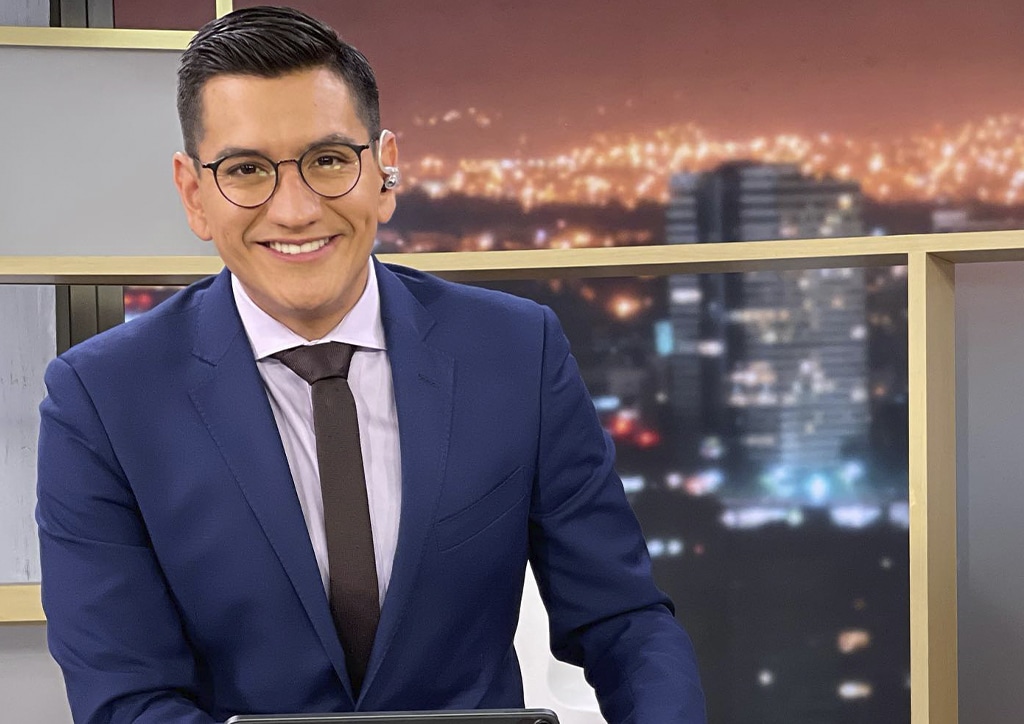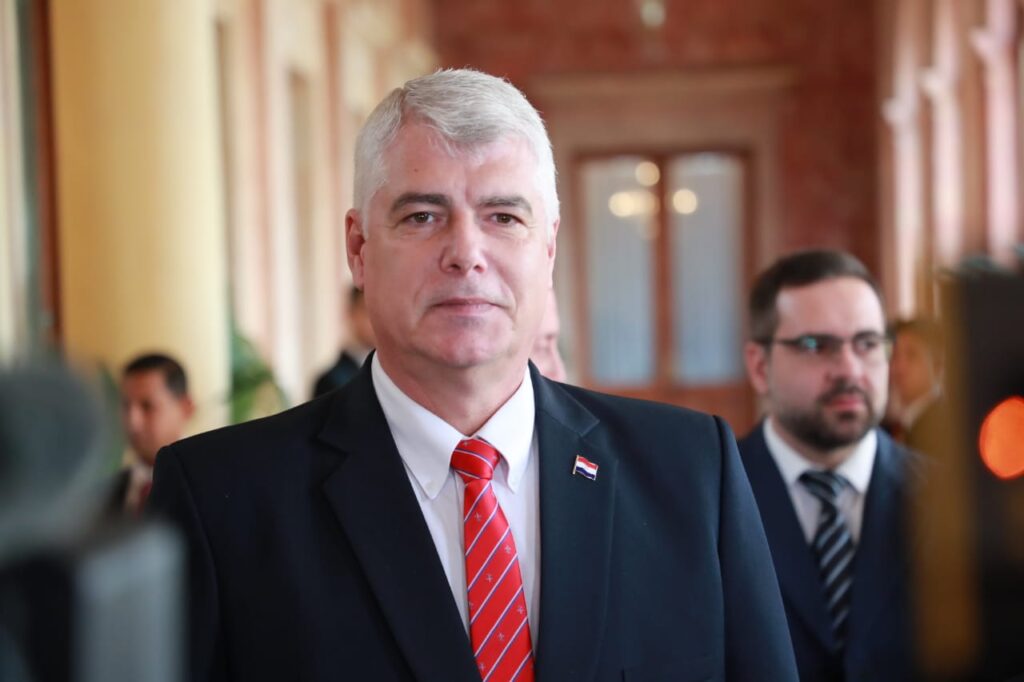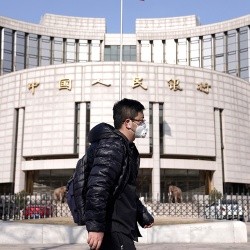Mexican journalist Otoniel Martínez, from TV Azteca, was in Nicaragua for two weeks last July, with the purpose of discovering the daily life of Nicaraguans under the state of police siege. The communicator along with two other colleagues entered Nicaragua, from Costa Rica, as tourists, to circumvent the control that the dictatorship maintains over national and foreign journalists.
The Mexican television reporter toured the streets of Managua, its neighborhoods, markets and parks, and also ventured into the interior of the country in cities such as Matagalpa, Masaya and Granada, where he found “a silencing fear” and the “uncomfortable” which is for people to be filmed with a cell phone. “Why are you there? Why are you recording? What are you looking for?”, were some of the reactions and responses he received. On one of the days of his coverage, he was harassed and interrogated by the police for recording on public roads with his cell phone. “It is a symptom that something is not normal. A reality that cannot be happening in 2022”said the journalist in an interview with the program This week.
The Mexican reporter describes Nicaragua as “a front country”where “it hurts to breathe”. Martínez will present a special series of reports divided into five installments, starting this Monday, August 15, until Friday, August 20, on Mexican television. During the next week they will be available on the social networks of Azteca Noticias.
How did you manage to enter Nicaragua without being denied entry? Daniel Ortega’s regime has previously denied the entry of more than a dozen international journalists.
We decided to do it by land, which forced us to make a stopover in Costa Rica. This meant not wearing any type of identification, not wearing uniforms, not wearing anything at all that linked us to the profession. He was then looking more like a tourist than a journalist. We did not carry professional cameras, we did not carry lighting, professional microphones, as we are used to working, the only thing we carried were cell phones to be able to document what we wanted, which was the daily life of Nicaraguans in this country that is experiencing one of the worst dictatorships.
After two or three hours at the immigration station, we managed to enter the country. They took the passport away from us and it was taken to the offices, without saying anything at all, they came back, asked us another series of questions, and again they took that passport and took it to the offices. This happened on three occasions, until we finally received the immigration stamp, and managed to cross the border and continue until we reached Managua.
Why did you decide to travel to Nicaragua? What had you heard before the political and social crisis, and what could you find on this trip?
In Mexico they talk more about Honduras and El Salvador, even Guatemala, because of migration, they don’t talk about Nicaragua so much. It seems to me that the X-ray of Nicaragua can help Latin Americans reflect and know if their country is headed for a similar situation. That is why I decided to travel to Nicaragua.
We work at forced marches to obtain the sufficient material. We did it from sunup to sundown, from very early we went out to the streets of Nicaragua, mainly Managua, with some interviews that we had already arranged, others were denied us; So we had to find a plan B to get the testimonies we needed to tell the story of Nicaragua. The intention of this journalistic documentary is to show Latin Americans that the reality of Nicaragua: is a reality that cannot be happening in 2022; and it is a reality that is possibly being written in other Latin American countries.
In your coverage, what places did you visit, and what was the reaction of the people on the street, to your questions? Are citizens afraid?
We moved in Managua; we went to Matagalpa, Sébaco, Granada and Masaya. We moved in the streets, we got on buses, on caponeras; we went to markets, we visited shopping malls, parks; we even stopped at roundabouts, we moved by taxi; We talked with transporters, with teachers, doctors, merchants, with Sandinista leaders who, in a certain way, coordinate the neighborhoods; and also with opposition leaders.
A cell phone in the street makes Nicaraguans uncomfortable. I was detained twice by the Nicaraguan Police, and obviously I had to face a police interrogation to answer who I am, what I was doing there and why I was recording (with a cell phone), mainly.
On the second occasion, which is one of the most tense moments I experienced in Nicaragua: they arrested us for filming the Plaza de la Revolución. Preparations were already underway for the anniversary event (of the Sandinista Revolution) and that’s where, first, a policeman saw us and was very indifferent, which made us believe that obviously nothing was happening. So, I dared to record in front of police officers, to see what the reaction of a police officer is. And I detect that a uniformed woman is not distracted by what I was doing. When we walk a few more steps, I hear that through the radio they tell him who are the ones who are recording at the entrance of the cathedral? And then comes an indication that we are not allowed to leave, and that we wait there until the boss arrives.
They begin to ask us a series of direct aggressive questions, and obviously aggressive indications in front of the camera, such as – turn off that phone. And then came the interrogation and review of all the material. That day they forced us to erase material that we had already documented during the morning. Those were the things that began to raise these symptoms for me that something is not right in Nicaragua.
Another moment was in the eastern market. As a Mexican, I have the freedom to record with cell phones, but also with professional cameras in a market, I have no type of restriction. And it was in that market, when I experienced the most frank reaction of the people, that you are left looking very strange, people who turn around, who cover themselves; people who dare to question you: why are you there?, why are you recording?, what are you looking for?
Later, in this exercise of reviewing all the material, I realized that behind me, (there were) very threatening looks, and I begin to identify the same person at various times of my journey, which also seems to me not normal .
When I get on (a bus) and we start recording, I start talking with a user and a person starts recording me, my colleagues, and also begins to send not only those videos and photographs, but also the location of that journey that we made. We descended, it did not happen to more. But, that is another one of the symptoms that I documented and that I can say do not seem normal to me.
I met a Nicaraguan population that is afraid to speak, that those who were loaded with courage asked me in a very sincere way to omit names, faces, even to be very careful with the location where I had done the interviews, which It speaks to me of a silencing fear.
doWhat is your call to the international press? Why should they turn to see Nicaragua?
We are the voices, ears and, many times, the eyes of those who cannot do it. It seems to me that as journalists, as reporters, we cannot be indifferent to what is happening to a country, be it Nicaragua, or Venezuela, or Cuba, or Mexico itself. We cannot remain silent, because then we are complicit in the normalization of things that should not be happening in a country. It is a call to the authorities, to international opinion, but above all to journalism from other Latin American countries.
It seems to me that we need more colleagues, like the Nicaraguan reporters who, even when they have had to live in exile, continue to do journalistic work so as not to silence the voice of a country. What we cannot allow is to remain silent, as hundreds of thousands have been silenced in Nicaragua.
You have summarized your experience in Nicaragua and described it as “a front country”. The people who want to see your report, where and from when will they be able to see it?
Starting this Monday, August 15, in all the informative spaces of Azteca Noticias, you will be able to see five special pieces, one per day; and after seeing them on the air on our screens, they will also be able to see these pieces on all digital platforms. It will be a much longer documentary, with voices that perhaps could no longer enter these short pieces, with images and testimonies; and other alternative content that we are producing in order to be able to use all the material that we obtained in two weeks of staying there in Nicaragua.
















